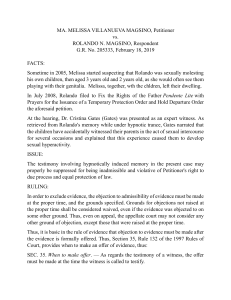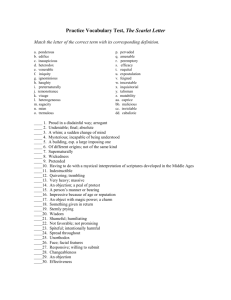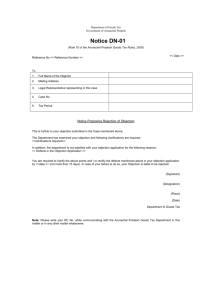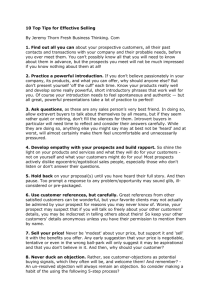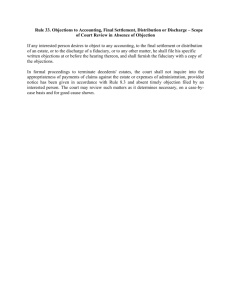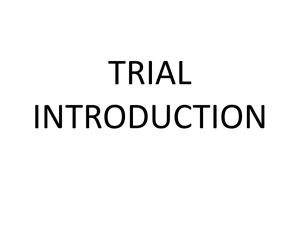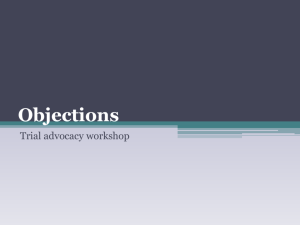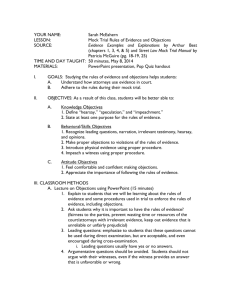Common Trial Objections
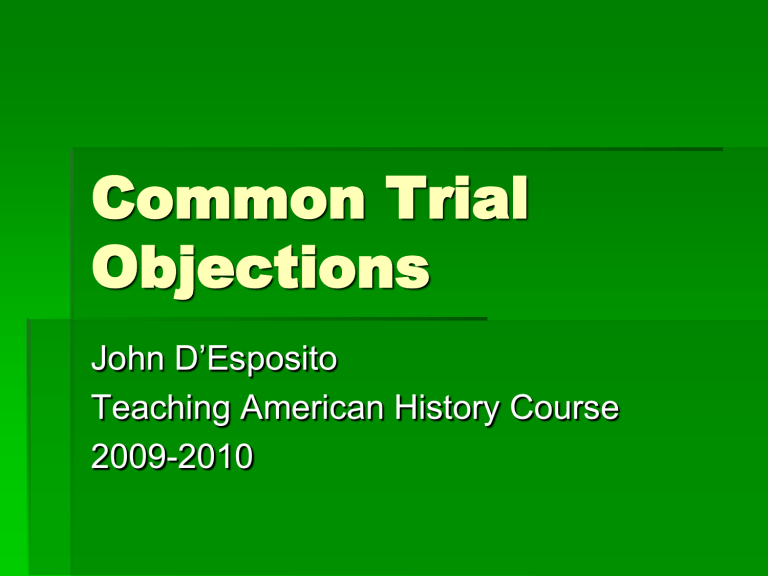
Common Trial
Objections
John D’Esposito
Teaching American History Course
2009-2010
Common Trial
Objections
Use immediately after the offending statement or answer
Objection, your Honor, the question is ambiguous!
It may be misunderstood by the witness
It may take on more than 1 meaning
“Was the light red or green when you went though it?”
Objection…Argumentative!
It is asked for the purpose of persuading the jury or the judge, rather than to elicit information
It calls for an argument in answer to the argument in the question
It calls for no new facts, but asks the witness to concede to inferences drawn by the examiner
“Don’t you agree that most people who tell a story like yours are liars?”
Objection… Asked and
Answered!
The witness has already asked substantially the same question by the same attorney on the same subject matter
“Where were you on June 27 th of this year?
“On June 27 of this year, where were you?”
Objection… Assumes facts not in evidence!
It presumes unproven facts to be true
“When did you stop beating your wife?”
This assumes that he is or has been beating his wife
Objection…the question is compound!
It joins two or more questions ordinarily joined with the word
“or” or the word “and”
“Is it true that you stole the item and that you work at
Burger King?
Objection… question is too broad, too general, or indefinite!!
It allows the witness to respond with testimony which may be irrelevant or admissible.
Each question should limit the witness to a specific answer on a specific question
“How do you feel?”
Objection… hearsay!!
Question invites the witness to offer an outof-court statement to prove the truth of some matter in court
“What did Janie tell you at lunch?”
There are many exceptions to the hearsay rule
Objection…irrelevant!
It invites or causes the witness to give evidence not related to the facts at hand
“Are you a Mets fan or a Yankee fan?”
Objection…leading!!
It suggests to the witness the answer the examiner wants
This is allowed on cross-examination or with witnesses the judges rules are hostile
“The license plate of the getaway car was 4Y618, wasn’t it?”
Objection…misstates the evidence!
It misstates or misquotes the testimony of a witness or any other evidence produced at a hearing or trial
“In summary, the coroner has told you the victim was not killed by a gun shot.”
Objection…Speculative!
It causes the witness to speculate or answer on the basis of conjecture
“Why do you think
Louise decided to rob the bank that day?”
